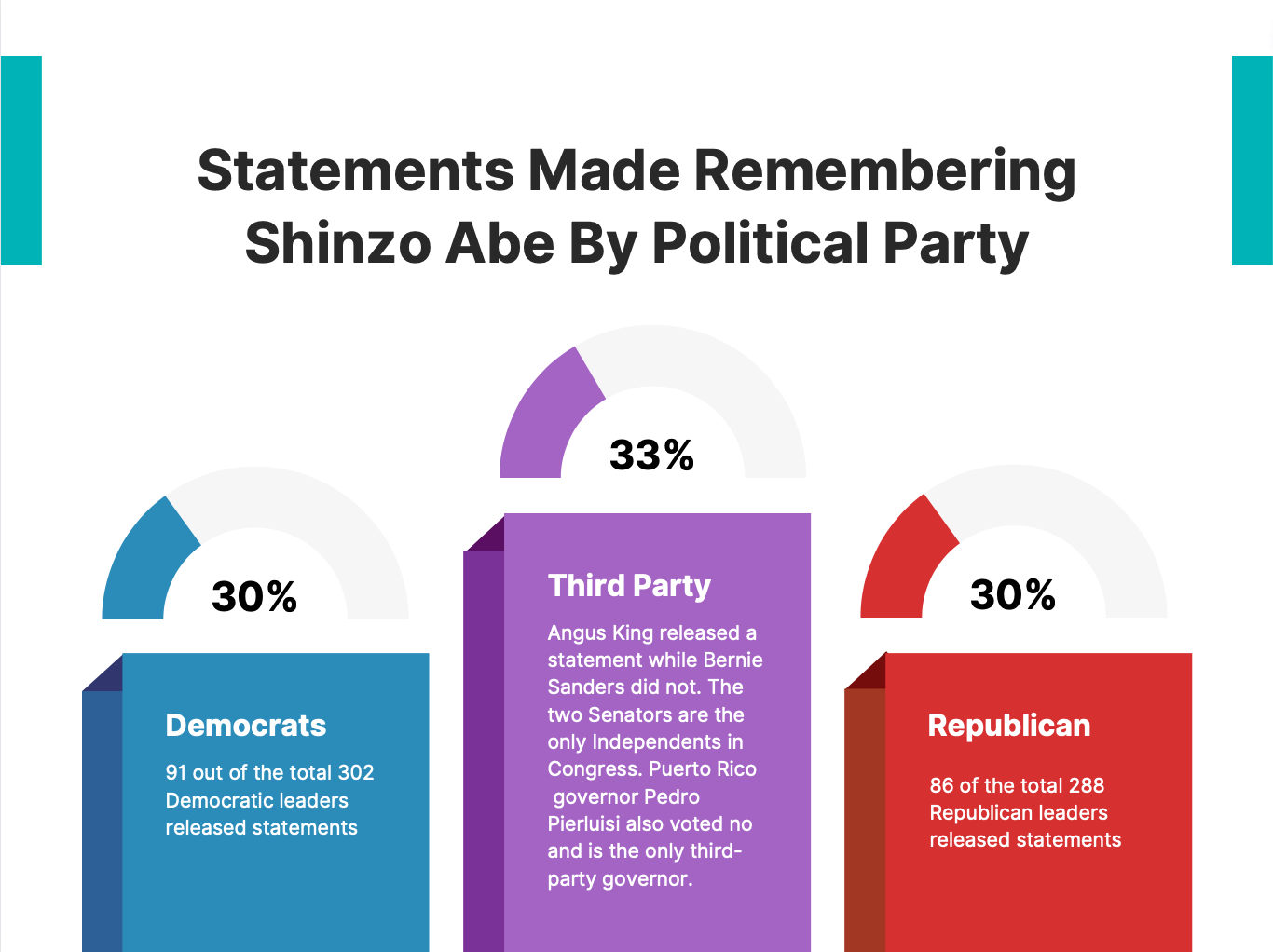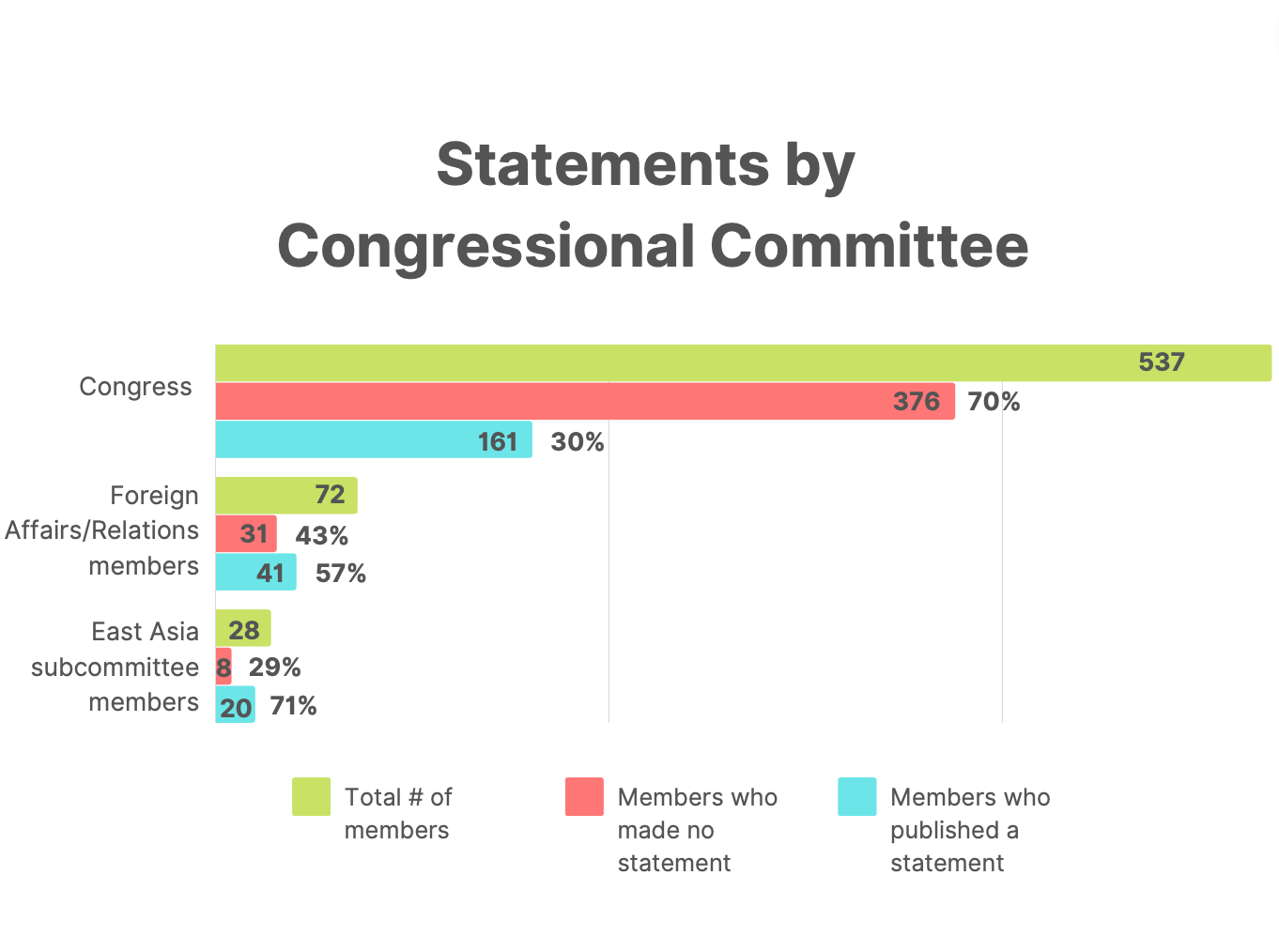On July 8th, as Americans woke up to the shocking news that former Prime Minister of Japan Shinzo Abe had been assassinated during a campaign rally, an outpouring of sorrow came from US politicians’ Twitter accounts and official websites. Speaker of the House Nancy Pelosi (D-CA 12) called Abe “a champion of peace and prosperity for the entire world,” Senators Mitt Romney (R-UT) and Jim Risch (R-ID) wrote he was a “constant friend of the United States,” and Governor Ron DeSantis (R-FL) referred to the former Prime Minister as a "heck of an ally to this country." Several politicians highlighted how instrumental Abe was in creating a free and open Indo-Pacific, including Pacific politicians from Hawaii, Guam, and American Samoa.
However, the assassination of Shinzo Abe was not immune from domestic political stances. After NPR wrote in a now-deleted tweet that Abe was a “divisive arch-conservative,” Republican Congressman Ronny Jackson (TX-13) responded by calling to defund the news organization he described as “government-funded anti-American propaganda” and “garbage.” Similar criticisms were echoed by Senator Josh Hawley (R-MO), Chairman of the Georgia Republican Party David Shafer, and Ted Cruz (R-TX) staffer Steve Guest.
Responses to the shooting of Abe also connected the gun death to the 2nd Amendment debate in the United States on both sides of the aisle. Democratic President Joe Biden contrasted the murder with the number of gun deaths in the United States. In discussing a Congressional resolution proposed to honor Shinzo Abe, Senator Cardin (D-MD) said “the amount of gun violence we see in America is so much greater than in Japan because of the availability of weapons.” Meanwhile, a number of GOP candidates running in 2022 Congressional elections pointed to the assassination as evidence of the failure of gun control laws, including candidates in the FL-24, FL-10, TX-16, and VA-8 districts—one of whom directly blamed “Biden’s authoritarian laws.” Data on gun deaths do, however, show a correlation between Japan’s comparatively strict gun control laws and low firearm fatalities. In 2018, when the United States had 39,740 firearm deaths, Japan had only nine.
Despite the different approaches in responses—especially at ideological fringes—political party did not correlate in an overall difference in reaction to Abe’s assassination. Of the 592 senators, representatives, and governors serving in elected office, 30% of both Democrats and Republicans released statements grieving the loss of Japan’s longest-serving Prime Minister.

Analysis of the whole group of state leaders shows that ties to Japan were an indicator for statements honoring Shinzo Abe. Of the governors of the 50 states, Puerto Rico, and Washington D.C., those who put out statements were from a state or territory representing on average more Japanese Americans than those in a state whose governor did not put out a statement.

Of Congresspeople who serve on the House or Senate committees on East Asia, 71% publicly mourned the loss of former Prime Minister Abe compared to 32% of the total of Congress.

Given Abe’s record eight years in office as Prime Minister, numerous trips to the United States, and dedicated partnership with the United States in its Indo-Pacific presence, it is undoubtable that Shinzo Abe’s legacy will continue to define American relationships with Japan and East Asia as a testament to the number of leaders his tenure impacted.
Meghan Murphy is a Young Professional and Research Intern at the East-West Center in Washington. She is a rising senior at Brown University studying International Relations with a focus in Indo-Pacific Affairs.
Data collected for this article included research by:
Kenji Nagayoshi, a participant in the Young Professionals Program at the East-West Center in Washington. He is a second-year MA candidate at American University's School of International Service, studying international affairs with a focus on international security.
Batjav Naranbat, a former participant of the Young Professionals Program at the East-West Center in Washington. He is a recent graduate of the University of Humanities of Mongolia in International Relations Program.
Harini Narayan, a participant in the Young Professionals Program at the East-West Center in Washington. Harini is a master’s student at Columbia University studying South Asian Studies.
Su Myat Noe, a participant in the Young Professionals Program at the East-West Center in Washington. She is a Master’s student at The University of Oklahoma’s College of International and Area Studies.
Symon Majewski, a participant in the Young Professionals Program at the East-West Center in Washington.